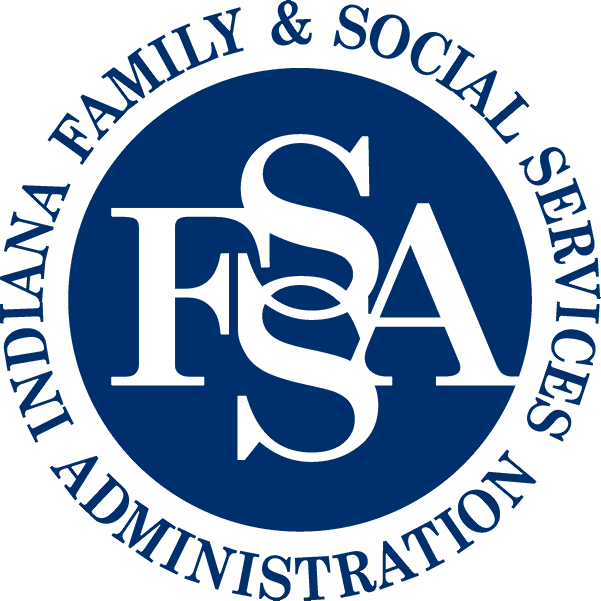FSSA Glossary of Terms
The following terms relate to FSSA programs and topics. They are not inclusive, but may provide insight into any terms or programs you encounter on our site or in our Resource Guide with which you are not familiar. If you need clarification on a term, or know of another one that needs to be added, please email Office.Communications@fssa.IN.gov.
Agency review – A post-hearing process conducted by the FSSA Office of Hearings and Appeals to determine whether the appeal process was properly conducted.
Appeals and hearings – Numerous actions and decision by the state are subject to appeal. An appeal is processed at a fair hearing before an impartial FSSA administrative law judge.
Area Agencies on Aging – There are 16 of these not-for-profit agencies around the state. They provide case management, information and referrals to various services for persons who are aging or developmentally disabled.
Assistance group – Persons living together who receive benefits issued through Supplemental Nutrition Assistance Program (SNAP) and/or Temporary Assistance for Needy Families (TANF)
Authorized representative –A person who has been specifically authorized by an applicant or recipient of health services or other benefits to receive that person's private health information or other confidential information and, if expressly authorized, to act on behalf of the beneficiary or applicant.
Case manager – An experienced professional who works with clients and providers coordinate necessary services to a client.
Copayment (copay or co-pay) – The amount a beneficiary must pay for health services or prescription drugs as his or her portion of the cost that a health care program plan does not cover.
Deductible – The amount a person must pay toward his or her medical expenses before a coverage program such as a health insurance plan begins paying.
Durable medical equipment – Any equipment that provides therapeutic benefits to a patient in need because of certain medical conditions and/or illnesses. Examples include wheelchairs, hospital beds and other non-disposable medical equipment.
Extended care facility – A licensed health care facility for residential, long-term care.
Long-term care facility – A facility that provides a variety of permanent or temporary health and personal needs services over a period of time. Examples are nursing homes and assisted living facilities.
Low income supplement – A low income supplement, as it relates to Indiana Medicaid, may include Medicaid monthly financial supplements under any of three Medicare programs: Qualified Medicare Beneficiary (QMB), Qualified disabled working individual (QDWI) or Specified low-income Medicare beneficiary (SLMB). More information about these programs is available here.
Managed care – An arrangement whereby a single provider or organization oversees the overall care of a patient so as to ensure cost-efficient quality health care to its members.
Managed care entities – Organizations that oversee the overall care of a patient so as to ensure cost-efficient quality health care to their members.
Medicaid number – The unique number assigned to a member who is eligible for Medicaid services. This number can be found on the front of your Medicaid ID card.
Medicaid transportation – Patient transportation provided by vendors, whom Indiana Medicaid reimburses, for taking Medicaid members to and from medical service providers.
Additional Medicaid specific terms and definitions are available here.
Prior authorization (PA) – An authorization required for the delivery of certain services. The medical services contractor and state medical consultants review PAs for medical necessity, reasonableness and other criteria. The PA must be obtained before a service for benefits is provided within a certain time period, except in certain allowed instances.
RID number – A recipient identification number (RID number) is a client identification number and is found on cards issued for services, such as a card for Medicaid, SNAP or TANF services.
Section 8 – Former term for Housing Choice Voucher; refers to low-income housing funded by the United States Department of Housing and Urban Development (HUD).
